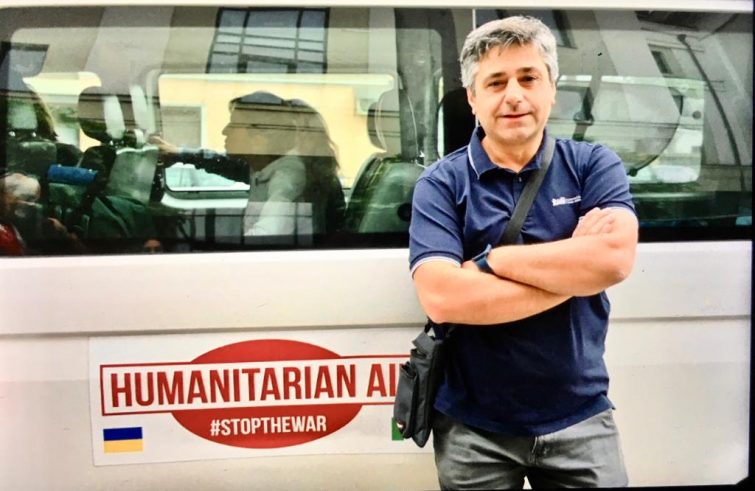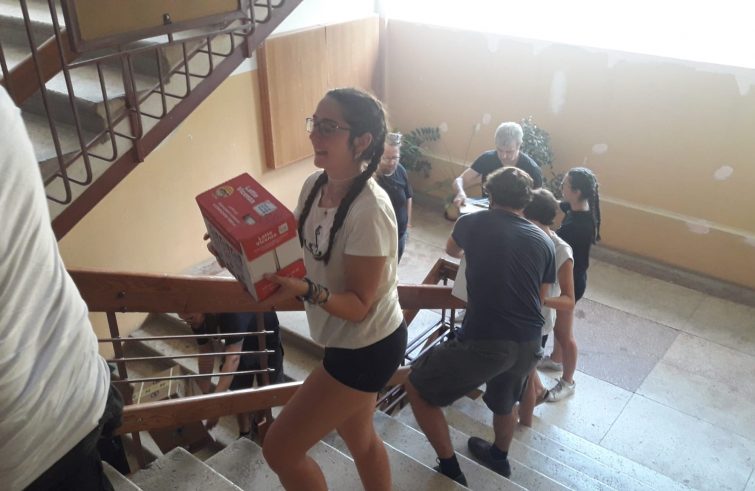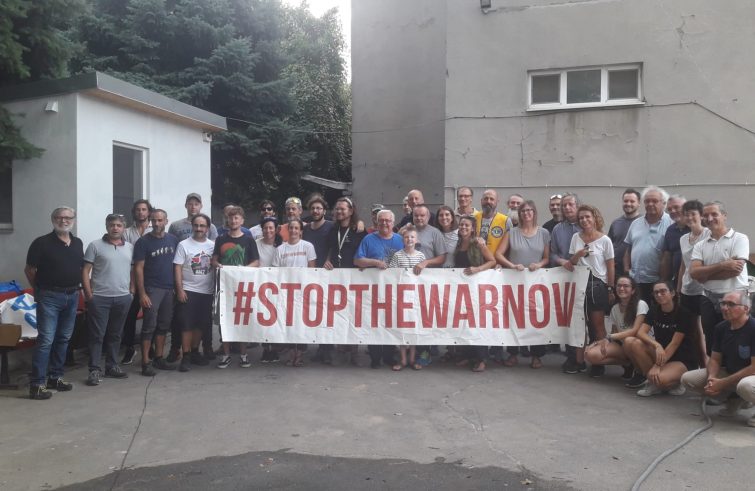
“The fear of shelling is not the most worrying aspect. In fact the greatest fear is that this could become yet another forgotten conflict. If we were to free ourselves from Russian gas, this war could go on for another 50 years without anyone noticing.” Gianpiero Cofano, general secretary of the Pope John XXIII Community, coordinator of the StopTheWarNow Network, shares his thoughts while driving his Passat on his way back from the peace caravan that from August 29 to September 3 brought 50 Italian volunteers and a dozen tons of humanitarian aid first to Odessa and then to Mykolaiv. On this occasion, the solidarity and peace initiative went as far as a few kilometres from the Kherson front, reaching the volunteers of the Pope John XXIII Community who have been living in Mykolaiv for the past three months. This complex and challenging task involved sharing with the people of Ukraine the suspension of shelling, the blasts from the front line, constant siren alerts, taking shelter at night together.
We left from Italy with 10 tons of aid, 50 volunteers, 10 vans. We are returning with a suitcase of dreams and hopes, things to be done and accomplished in Italy. Indeed, peace is needed not only here in Ukraine. Peace is a universal good and it should also originate from our countries. We therefore call on our respective governments to commit themselves and take action towards achieving this longed-for peace. However, we too should be active agents of peace within our families, in the cities where we live, and transform what we have seen and heard into political action at local level, bringing with us the tears, the suffering that we shared with our brothers and sisters. These caravans are important because we embraced the hugs and hopes of the people suffering under the bombs, but they are even more important because of what we bring home, back to Italy.
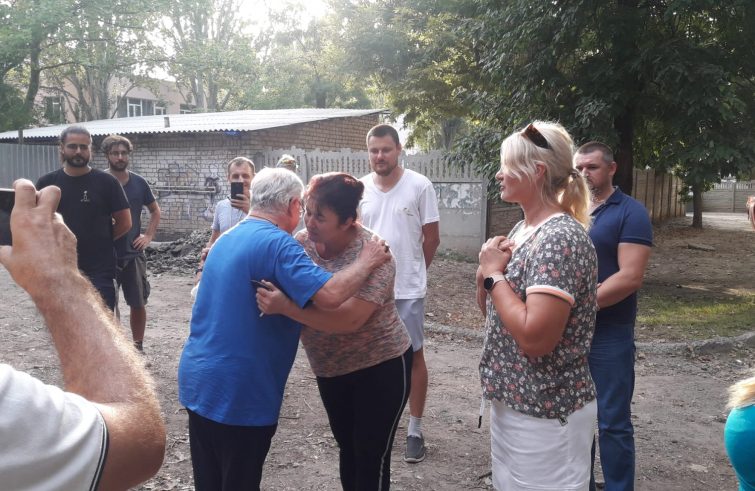 What situation did you find on the ground, given the very tense situation in Odessa and Mykolaiv?
What situation did you find on the ground, given the very tense situation in Odessa and Mykolaiv?
The first time we entered Ukraine, the conflict had just broken out and the atmosphere was marked by anguish, fear, and the desperation of millions of people leaving the country. It could be said that six months since the outbreak of this large-scale offensive, we are finally seeing some signs of normality. Even the Ukrainian authorities are calling for a return to normal life. Unfortunately, as we chose to remain on the front lines, we see a gloomier situation. The meetings we had with Mykolaiv city authorities over the past few days clearly reflect this state of affairs. They told us that unless factories reopen, unless households have gas and clean, drinking water, the 200,000 people left in the city will struggle to make it through the winter this year. There is widespread uncertainty, testifying to the fact that the situation remains very critical. The city of Mykolaiv was hit by 20 missiles until two days ago. Schools have reopened but classes are being held online because it’s too dangerous for children to gather in broad daylight. I don’t see great signs of improvement.
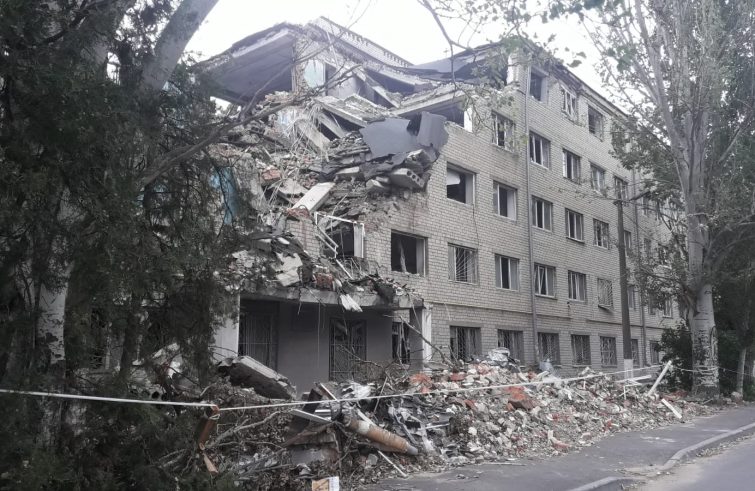 What are the requests of the Ukrainian people? What do they need the most now?
What are the requests of the Ukrainian people? What do they need the most now?
Here lies the difference between a humanitarian organisation and StopTheWarNow and the experience of civil peace corps. Normally, a local institution in a war zone asks for bread and money. In contrast, our friends in Mykolaiv have asked us to come and live with them. Bring us humanitarian aid – they said – “but please share your life here with us.” We are now returning home where we lack nothing. They are staying there, living with the bombs, there lives utterly shattered.
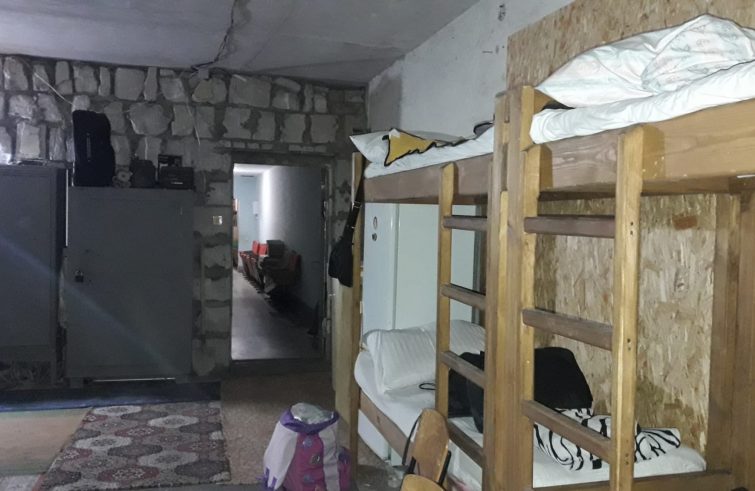 Negotiations are deadlocked. What is needed to restore peace today?
Negotiations are deadlocked. What is needed to restore peace today?
It’s hard to say, and we are not geo-political experts. We live with the people, and with the people we try to envision paths to peace. When there seems to be a solution or a course of action, we try to study it with them. When the roots are deep the tree grows strong and sturdy. First of all, we must stop sending weapons and ask the warring parties to take a seat at the negotiating table. Six months have passed. If we don’t believe that there is always room for negotiation and peace, we will have resigned ourselves to death. If we think that whoever has the most missiles and military force, and thus the ability to kill women, men and children, will win, we are giving in to the logic of war. If there is no room for negotiation and we surrender to arms, then even humanitarian aid is useless and will only be a last resort for a people doomed to die. Some tentative talks had begun. They must be encouraged. However, a possible agreement between Russia and Ukraine will never be reached until world leaders convince them to take this step. This means that the capacity and will for peace is also in our hands. Let us make sure that the logic of military and war factories does not determine peoples’ destinies.
 The efforts of StopTheWarNow are not over. A new peace caravan will leave for Kyiv on September 26. How will this commitment continue?
The efforts of StopTheWarNow are not over. A new peace caravan will leave for Kyiv on September 26. How will this commitment continue?
StopTheWarNow is more than the peace caravans, humanitarian aid, and presence on the ground. It is all of this together. We like to call it a symphony of small actions promoted by many entities, associations, organisations in Italy. A continuous stream of initiatives that brings oxygen to the peace movement with gestures and actions of solidarity, proximity and fraternity.

